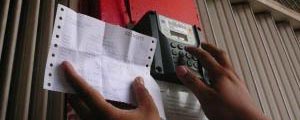
STATE-OWNED power utility Zimbabwe Electricity Transmission and Distribution Company (ZETDC) has reduced electricity tariffs for prepaid users and business as part of a rationalisation exercise as the country continues to grapple with a perennial energy crisis. ZETDC is a subsidiary of Zesa Holdings REPORT BY BERNARD MPOFU/MERNAT MAFIRAKUREWA
The company announced on Monday that the national energy regulatory authority had approved the new tariffs which came into effect this week.
This comes at a time when one of the country’s power plants, Harare Power Station, was shut down on Sunday due to low coal stocks. Other power stations – Hwange Thermal, Munyati, Bulawayo and Kariba Hydro – are currently operating below capacity due to ongoing maintenance and modernisation works. Under the new rates structure, prepaid users will get the first 50 kilowatts per hour for “free” while business will enjoy a 20% reduction on demand charge.
For pre-paid users, the first 50 units would be charged at $0,02 per unit instead of the normal $0,09 per unit.
Demand charge is a component of the tariff charged to large electricity users.
The charge, according to acting ZETDC commercial director Ralph Katsande, was slashed to $5,54 from $6,93.
In an effort to encourage responsible use of power by business, the power utility also reduced the off-peak tariffs to $0,04 per unit from $0,05.
“The lifeline units for prepaid are aimed at cushioning domestic users,” Katsande said.
- Chamisa under fire over US$120K donation
- Mavhunga puts DeMbare into Chibuku quarterfinals
- Pension funds bet on Cabora Bassa oilfields
- Councils defy govt fire tender directive
Keep Reading
“We have been responsive to the calls by stakeholders hence the rationalisation we have done. In order to encourage the shift to off-peak period, tariffs have been reduced by 20%.”
He said the new pricing regime was meant to encourage low usage of power and efficiency as part of measures to tackle load-shedding.
Katsande said the pricing structure was such that tariffs per unit increased with higher usage.
He said 55 000 households had so far been moved to the prepaid platform as the power utility seeks to widen its revenue base amid concerns of high defaults.
Official statistics show that as of yesterday morning, the country was generating 919 megawatts (MW) of electricity against a peak demand of 2 200MW. To ease the energy demands, Zimbabwe imports an average of 330MW daily from Hydro Cahora Bassa in neighbouring Mozambique.
Despite facing an energy deficit, the country exports 150MW to NamPower of Namibia as part of a long-standing deal between the regional peers. Under this arrangement, Zimbabwe exports energy to Namibia in exchange for maintenance for its energy installations.
Meanwhile, two Chinese firms – Sino Hydro and China National Machinery Corporation – have emerged as front runners eyeing the multi-million-dollar projects to expand Hwange Power Station.











